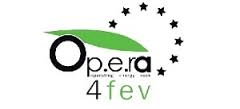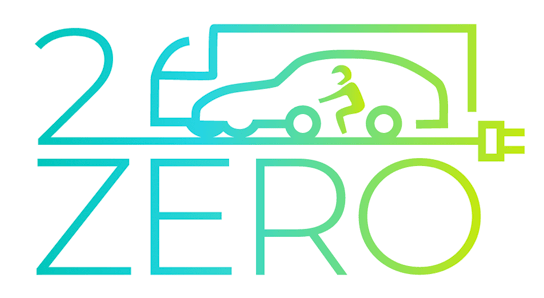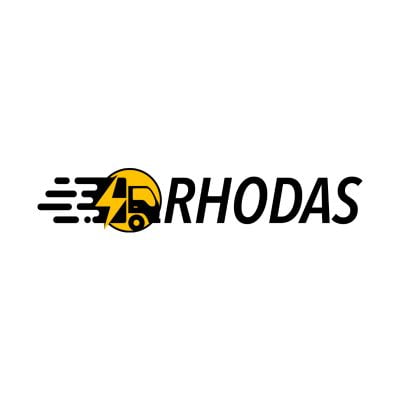OPERA4FEV – Operating Energy Rack for Full Electric Vehicle (March 2014)

The Operating Energy Rack for Full Electric Vehicles project (OPERA4FEV) is a European project under the 7th Framework Program of the European Commission. The project started in September 2011 for a total period of 54 months and aims to propose a cheap, light and versatile alternative solution to the present metal-based technology for power battery racks in electric vehicles. It also aims for a high level of function integration while taking crash and safety regulations into account in the mean time. It involves a consortium of 10 partners from 6 European countries and has a total budget of €7 millions.
Scope of the project
The OPERA4FEV project aims to develop thermoplastic battery racks based on Li-ion technology for two functional demonstrators: one for a large-scale vehicle (Iveco Daily, Fiat Group) and one for a “niche” car or city vehicle (Mia, Mia Electric). To improve the deployment of electrical vehicles in Europe, large-scale production processes for racks and electrical components need to be developed. OPERA4FEV aims at improving these manufacturing processes for benchmark battery racks in a more eco-friendly way. It targets obtaining a product with better integration characteristics as the current ones, with enhanced environmental competences. The currently used metals are being replaced by thermoplastics as a main component and all the parts involved in the rack (cooling system, printed circuit boards…) are being redesigned.

In order to show the relevance of the solution and meet strong industrial benefits, the OPERA4FEV thermoplastic racks will be manufactured and assembled with industrial means. The OPERA4FEV project aims to achieve full thermoplastics battery racks that integrates electrical and hydraulic connections and adaptable to any full electric vehicle model, with a strong focus on (crash) safety requirements. Manufacturing processes from the production of the cells itself up to large-scale system are considered. Plastic materials form a key element of this project and several grades of plastic will be used in the rack depending of their core function, encompassing strength, insulation and flame retardation. During the development process, the project takes into account the availability of critical materials and dismantling/recycling methodologies. This will lead to a complete eco-designed solution, able to be proposed at large scale. In addition, OPERA4FEV concept is fully in line with the European end of life vehicle directive stating that by 2015, vehicles must be constructed of 95% recyclable materials, with 85% recoverable through reuse or mechanical recycling and 10% through energy recovery or thermal recycling, the use of “green” composites is expected to greatly increase and prevail in the future vehicle components’ development. The impact of the newly developed rack technology on the environment is being assessed by means of a Life Cycle Assessment (LCA). Finally, the whole value chain for power battery rack is being addressed, including the eco-design (dismantling and recycling of critical materials), assembly and integration of cells and electric components.
Objectives of the project
Summarized, the main OPERA4FEV aims to achieve the following goals:
- Integration of battery cells in thermo plastic battery pack
- Integration of electric and hydraulic as well as component fittings
- Reduction of assembly time and fast connections of cells in factory
- 25% cost reduction on components (cells excluded)
- 30% weight reduction on components (cells excluded)
- 50% reduction of number of components
- Better and easier maintenance
- Eco-friendly design – Easier end of life dismantling
- Guaranty safety/crash behaviour
- Improve thermal regulation,
- Use of recycled polymers (70% in weight)
- Adaptable design to automotive industry
- High production rate in powertrain factory
Currently a complete integrated polymer-based and manufacturing-ready ECO-design of the battery pack, including Battery Management System and cooling system, has been carried out. All materials and components have been selected, including battery cells, quick connectors, electric components and reinforced polymer materials. An LCA study has been carried out and crash simulations have been performed. Dedicated test benches for the battery packs have been developed, production tools are near to realization, and pilot production racks will be made on very short term. These pilot racks will be thoroughly assessed by means of bench-, crash- and in vehicle testing.
Partners
- MECAPLAST Group (France and Monaco) is the coordinator. Worldwide Automotive tier one supplier of plastic parts.
- CENTRO RICERCHE FIAT (Italy), development and transfer of innovative content and car maker. In charge of the vehicle supply, assembly in the vehicle and tests on road conditions
- CETHIL (France) research laboratory in thermal science and energy engineering In charge of the cooling dimensioning, cells characterization and thermal tests.
- VRIJE UNIVERSITEIT BRUSSEL (Belgium) premier electric vehicle research facility in Belgium. In charge of LCA analyses and eco-design.
- EVE System (France) engineering company, In charge of electrical management, electrical component design and assembly of the complete racks.
- MIA Electric (France) Car maker. In charge of the vehicle supply, assembly in the vehicle and tests on road conditions
- OLESA (Portugal), engineering and tooling company. In charge of near-industrial tooling supply.
- GRUPO REPOL (Spain) providers and custom compounders of Engineering Plastics for injection molding and extrusion. In charge of the material supply.
- UNIVERSIDAD POLITÉCNICA DE MADRID (Spain) technical university. In charge of crash calculation and vehicle crash test.


